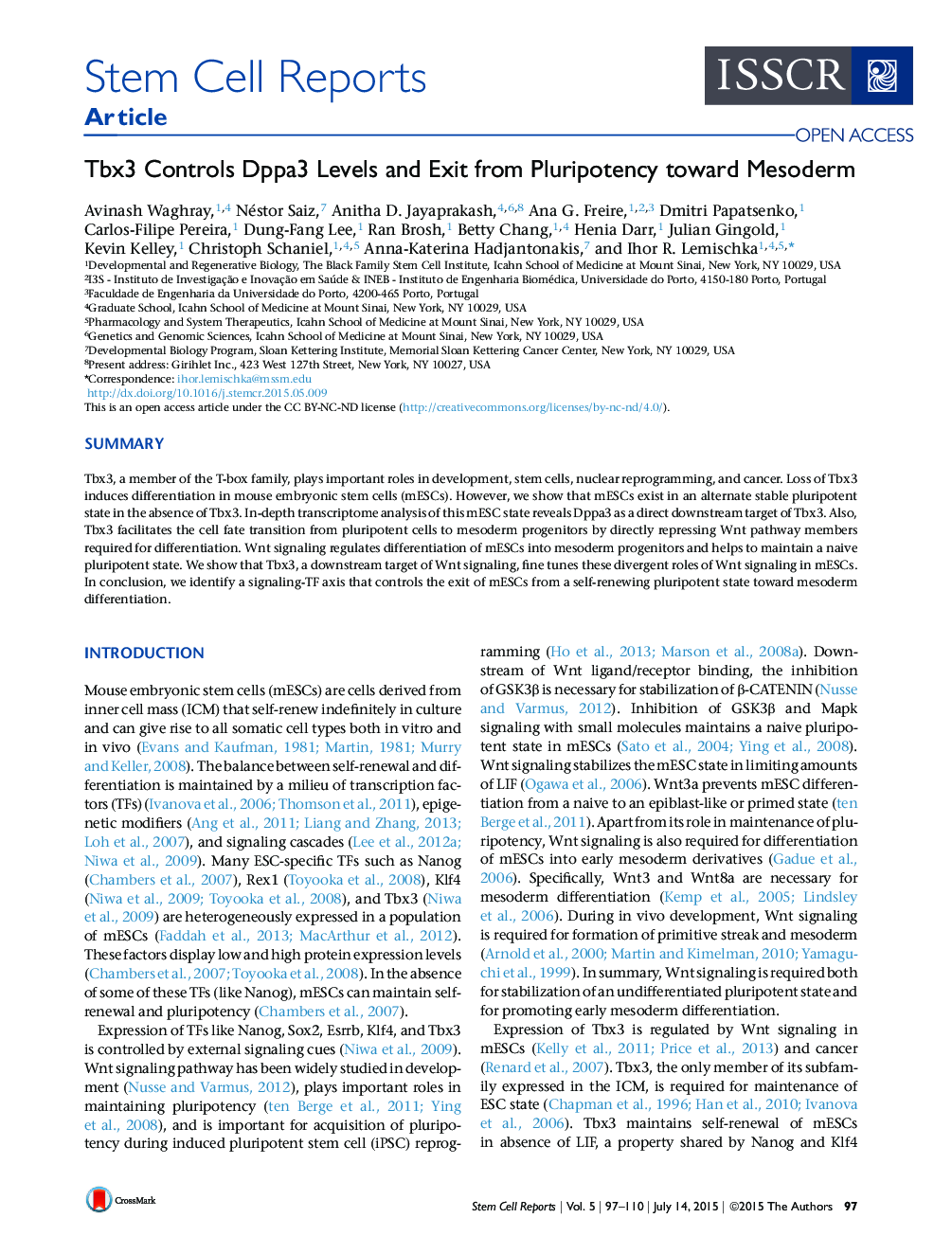| Article ID | Journal | Published Year | Pages | File Type |
|---|---|---|---|---|
| 2093497 | Stem Cell Reports | 2015 | 14 Pages |
•An alternate and stable pluripotent state of Tbx3 knockout mESCs exists•Tbx3 maintains steady-state levels of Dppa3 in mESCs•Tbx3 directly represses mesoderm specification genes like T•Tbx3 represses Wnt pathway genes required for mesoderm differentiation
SummaryTbx3, a member of the T-box family, plays important roles in development, stem cells, nuclear reprogramming, and cancer. Loss of Tbx3 induces differentiation in mouse embryonic stem cells (mESCs). However, we show that mESCs exist in an alternate stable pluripotent state in the absence of Tbx3. In-depth transcriptome analysis of this mESC state reveals Dppa3 as a direct downstream target of Tbx3. Also, Tbx3 facilitates the cell fate transition from pluripotent cells to mesoderm progenitors by directly repressing Wnt pathway members required for differentiation. Wnt signaling regulates differentiation of mESCs into mesoderm progenitors and helps to maintain a naive pluripotent state. We show that Tbx3, a downstream target of Wnt signaling, fine tunes these divergent roles of Wnt signaling in mESCs. In conclusion, we identify a signaling-TF axis that controls the exit of mESCs from a self-renewing pluripotent state toward mesoderm differentiation.
Graphical AbstractFigure optionsDownload full-size imageDownload as PowerPoint slide
